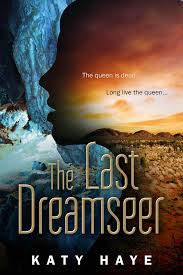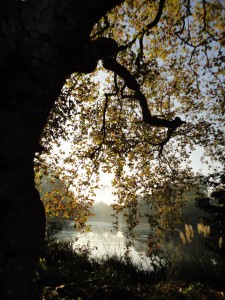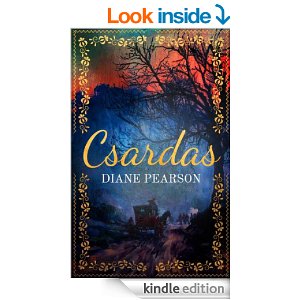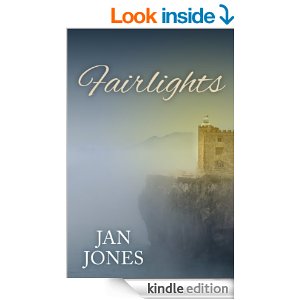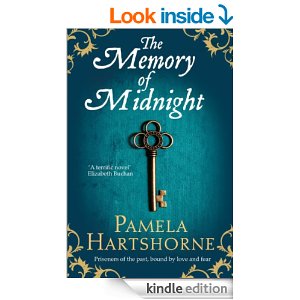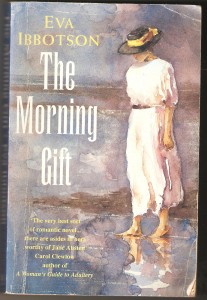Archive for the ‘Uncategorized’ Category
Can an Orc Change?
Just a year ago I was writing a 5 star review on Amazon for The Last Gatekeeper, a debut Young Adult novel by Katy Haye. Now she has written the second in her Chronicles of Fane series. The Last Dreamseer, and it is out today and, for the launch week only (November 27th – December 4th), the novel is on sale for 99c./99p, after which it will return to a permanent price of $2.99/£2.49. I haven’t read it yet, but I shall, as soon as it’s on my Kindle. Gatekeeper kept me up until the small hours wanting to know what happened.
The arrival of this novel started me thinking about why I so enjoy fantasy fiction and what is special about the Young Adult end of the genre in particular.
And I suppose the first, the universal element is the opportunity it gives us to marvel. In our rationalist world we are taught to deconstruct, analyse, assess, evaluate. All excellent tools to inform judgement. But wonder is another part of ship. You don’t have to suspend judgement, just to experience amazement, that sense of something immense and powerful.
Who ever said the Niagara Falls were a bit chocolate boxy? Who judges the forest? Wind? Water?
A sense of wonder is followed by the desire for knowledge. And this is where we get into territory that Young Adult fiction is so good at. Consider Inkheart by Cornelia Funke, a particular favourite of mine. Or the wonderful Diana Wynne Jones’s Witch Week. (Pretty much anything by Diana Wynne Jones actually.) Or the strange and scary Chime by Franny Billingsley – tag line ‘The story of a wicked girl has no true beginning. Knowledge is good and necessary but it is never enough.
Knowledge on its own cannot find solutions. You also have to overcome fear, understand consequences, have some idea what drives other people and know yourself. And then Choose.
Can you – do you want to –leap mountains in a single bound? Do you go through hidden doors to who knows where?
And this is where much Young Adult fiction is so interesting. It seems to me that Tolkien said there were temptations to overcome and times of trial but your identity was set and the moral path was laid out. An orc was an orc. Writers like the ones I’ve named, including Katy Haye, seem to say that you have to find both for yourself. For someone like me, ineradicably committed to a happy ending, that is irresistible. Maybe someday, somewhere, someone will write the book where an orc finds he’s a gardener. Please.
Mary Stewart RIP
Such sad news that wonderful Mary Stewart died on 9 May. I have been watching again the interview she gave to Off the Page on Scottish television.
In 2006 the Romantic Novelists’ Association gave Mary Stewart a Lifetime Achievement Award. I collected the tributes. From my own archive, as far as I can tell, this is what we told her then.
The Romantic Novelists’ Association salutes
Mary Stewart
and says thank you for
hours of wonderful reading
and
for inspiring so many of us
18th August 2006
From RNA Members
Diane Pearson writes
Mary Stewart, almost single handed, brought the gothic romantic novel back into contemporary popularity, giving it a unique new quality that was essentially her own. Her books are now household names.
Diane Pearson, editor and author, wrote international best sellers ‘Czardas’ and ‘Summer of the Barshinskys’, among others, and [is] was President of the Romantic Novelists’ Association.
Jan Jones writes
“It was the egret, flying out of the lemon-grove that started it.”
That, the opening line from The Moonspinners, sums up what Mary Stewart means to me. The to-die-for sense of place expressed in just a few skilful words. The delicious hint of adventure and romance. The promise of a glorious few hours, curled up with one of my favourite authors, oblivious to the outside world.
I could read Mary Stewart’s books over and over – and every time I do, I’m transported again to that precious state where nothing else matters except what you are reading.
Thank you, Mary.
Jan Jones is the author of ‘Stage by Stage’, winner of the 2005 Joan Hessayon Award for a First Novel and many others,most recently ‘Fairlights’.
Pamela Hartshorne writes
Mary Stewart’s writing is such a model of intelligence and good taste, that I can’t help feeling she would have little patience with gushing appreciation . … but it is hard not to gush when I think about the enjoyment she has given me as a reader, and the influence she has had on me as a writer. Impossible, too, to choose which of her books is my favourite. I can narrow it down to six (Madam Will You Talk?, This Rough Magic, My Brother Michael, The Moon-Spinners, Airs Abover the Ground and Nince Coaches Waiting) but no further. Every time I read these books, I find something new, something that strikes a chord, something that makes me think “What must it be like to be able to write like that?”
I love the intelligence and integrity of her characters, the way her heroes are barely described and yet are so extraordinarily attractive, but I think what draws me to these books most particularly is the sense of place they evoke, so that I fell when I close the book as if I have actually been on a Greek mountainside, or swum with a dolphin in Crete. And as for the food . . . ! Anyone who has ever read Madam, Will You Talk? remembers the wonderful meal Charity shares with Richard Byron in the Stewart fans, comparing it with the midnight feast after the Easter Ball in Nine Coaches Waiting or the dinner at Delphi in My Brother Michael, all remembered as vividly as if we had eaten them ourselves. It is thirty-five years since I first read a Mary Stewart, but her lucid, luminous prose remains a matchless source of pleasure and inspiration.
Pamela, who also writes as Jessica Hart, is a multi prize winner. In 2005 she won the US RITA for Best Traditional Romance for Christmas Eve Marriage and in 2006 the RNA Romance Prize for Contracted Corporate Wife. Her most recent novel is ‘The Memory of Midnight’.
Marina Oliver writes
Mary Stewart is a storyteller par excellence. Not only can she evoke great tension, her plots are intricate and satisfying. She transports the reader to the places she describes so vividly, that I can imagine myself on a Greek hillside, or a Lebanese valley, smelling the flowers, feeling the heat.
She is also versatile, with books set in different eras and today. The backgrounds are always so convincing. A friend from my reading group who read one of her novels said to me, ‘It’s so good to read a real book.’
Marina Oliver, former Chairman of the Romantic Novelists’ Association, is writer, editor, tutor and reviewer. She has written ‘A Cut Above the Rest’ and many other novels.
Jenny Haddon writes
There are some authors whose words walk with you throughout your life, encapsulating a moment, a feeling. ‘Ah yes, I recognize that,’ you say, for a moment completely aware. From Nine Coaches Waiting:
The air was very still. Below me, in the valley-depths where the river ran, I could see, quite distinctly now, the pale drift of mist. The owl cried again once, very sadly, form the wood. There was a strong wet smell of earth and growing things; the smell of spring . . . not softness, not balm-and-blossoms, but something harsh and sharp that pierced the senses as the thrust of new life broke the ground. The cruellest month, breeding Lilacs out of a dead land . . . yes that was it. That was it. Not for the first time I was sharply grateful to Daddy for making poetry a habit with me. The best words in the best order . . . one always got the same shock of recognition and delight when someone’s words swam up to meet a thought or name a picture. Daddy had been right. Poetry was awfully good material to think with.
So is Mary Stewart.
Jenny Haddon has written forty something books, mainly under the pen name Sophie Weston, most recently ‘To Marry a Prince’ by Sophie Page. She [is] was then Chairman of the Romantic Novelists’ Association.
What a writer we have lost.
The Neglectful Gardener
It is April. I like April.
Chilly old T S Eliot called it the cruellest month, ‘breeding lilacs out of the dead land’. Cheerier poets thought otherwise. Chaucer welcomed the month’s ‘shoures soote’. And my dear Robert Browning, enjoying married life with his personal Andromeda amid Florentine palaces, politics and dramatic past, still gave himself up to purest homesickness when April stirred its stumps.
Oh, to be in England now that April’s there
And whoever wakes in England sees, some morning, unaware,
That the lowest boughs and the brushwood sheaf
Round the elm-tree bole are in tiny leaf,
While the chaffinch sings on the orchard bough
In England—now!
Me? April always reminds me that in one of my very best fantasy lives I am a gardener.
It leaks through into my real life a bit. I plant seeds every year. Indeed, I acquire them from parks and gardens, nurture them in dark places and then nurse them and mutter over them and generally comport myself like a real gardener. But, of course, with only pots to transplant them into, my success rate is not high. But just sometimes I receive a gift from the universe.
At the end of last year, I threw into pots, very late, a few bulbs of I knew not what. And April has given me
I don’t deserve it. But today I am a Fortunate and Happy Person.
Let’s hear it for April!
Eva Ibbotson
I am so very sad to see from the Observer’s obit column on Sunday that Eva Ibbotson has died. She drew obits from The Guardian, The Daily Telegraph and the New York Times, quite rightly. All focused on her work as an accomplished children’s author. But they were sadly light on appreciation of her romantic novels for adults.
She did, of course, win the Romantic Novel of the Year with Magic Flutes in 1983, as the Telegraph noted. Um – recently re-issued, it has been given a new title, Reluctant Heiress, presumably by some pale eyed genius with a degree in Applied Bum-Numbing and no truck with allusion, ambiguity or intriguing the reader. Ibbotson was not impressed. She didn’t much like the new covers, either, which is why I have scanned in my own much loved, much read and just a tiny bit battered copy of my fabourite Ibbotson, below.
But she did more than win the UK’s main award for Romantic Fiction. She brought a fresh, idiosyncratic and deeply humane voice to romantic fiction. She was, you felt, a writer who knew what a happy ending was for.
Last year Anne Gracie (friend of mine and most excellent writer) interviewed Ibbotson on the always rewarding Word Wenches Blog. In her answers, Ibbotson said she thought of her books as presents for the reader and ‘not too much about my soul and the sunset’. She certainly gave her readers every last drop of satisfaction from the romantic entangling of her delicious, generous, healing heroines and her troubled heroes.
In the matter of heroes, even an enthusiast for romantic fiction like me has to admit that, sometimes, the modern author can short change him. He may end up not much more than an idealised loved object, dimly perceived through a fog of lust, sentiment and fag smoke. Not in Ibbotson’s novels. She knew her hero and she loved him, quite as much as she loved her heroine. Usually, he is not intrinsically glamorous; indeed there is a dash of nerd in most. Even my beloved Quinn in Morning Gift, has more than a hint of Gussie Fink Nottle about him. But when he applies that intensity, that seriousness, to the objective of his heart as well as to scholarship, he is breathtaking– especially as he struggles between what he wants, what he thinks the heroine wants and what it would be the right thing to do.
Ibbotson told Anne Gracie: ‘The kind of dichotomy between honour and passion is as old as the hills and I must say getting my heroes out of their dilemmas has sometimes not been easy.’ She always did but they travel a hard road before they get their reward.
Also, she loved her minor characters. As she told Gracie ‘the word minor hardly fits.’
I never forget the truly terrible scene from Countess Below Stairs, in which the washed-up and slightly disreputable Great Uncle is banished to his own rooms by an in-coming Eugenecist bride. After the heir’s marriage, Uncle will be condemned to stay upstairs, away even from the servants, who have known and cared for him all his life. He will be effectively a prisoner, with a nurse-jailer to ensure his good behaviour. Our heroine by now is breaking her heart for a man she cannot have. But she hauls herself out of her own misery, knowing that the humiliated old man can only be led back to some sort of peace through his music. So she persuades him to play a piano duet with her. Her hands are chapped and she’s out of practice. (She’s now employed as a housemaid.) His fingering has been ruined by rheumatism. So they sit down and play – and they do it, Ibbotson says, ‘Not well. Better than that.’
No, the word minor does not fit.
My own favourite of her novels is The Morning Gift, with its unlikely St George of a hero and its gloriously logical and slighty loopy heroine. Viennese Ruth, another refugee, not wholly in tune with Belsize Park or the stolid English, works everything out from first principles. As a result, she often gets them crashingly wrong. (By the way, for writers, this book contains a love scene so perfect that one despairs of ever writing one comparable, it is so heartfelt, so truthful, so sexy, with just the right spice of surprise and the faintly ludicrous.) But Madensky Square is perhaps more emotionally profound; A Company of Swans more magical; Countess both funnier and more of a fairytale. In all of them, though, Ibbotson has fantastic villains– smug, narrow minded people who throw their weight about because they can. You do not see for ages how decent people can possibly stand out against them. And then Ibbotson gives you the wonderful present of their come-uppance. They are trounced, usually by a divine alliance of the hero, the heroine and those life-enhancing not-minor characters.
But nothing I can say is as good as what Eva Ibbotson wrote herself. In that interview, Gracie also gave a link to a piece Ibbotson had written herself about what public libraries meant to the dispossessed refugees from Hitler’s Germany in 1930s Belsize Park. It was published in The Observer on July 9th 2006 and anyone who, like me, adores Morning Gift, will find familiar faces there. I’d quote from it but I don’t want to spoil it for you. It’s like a short story and it’s wonderful.
Please, please, please, read it here and see what a writer we have lost. But also enjoy!
